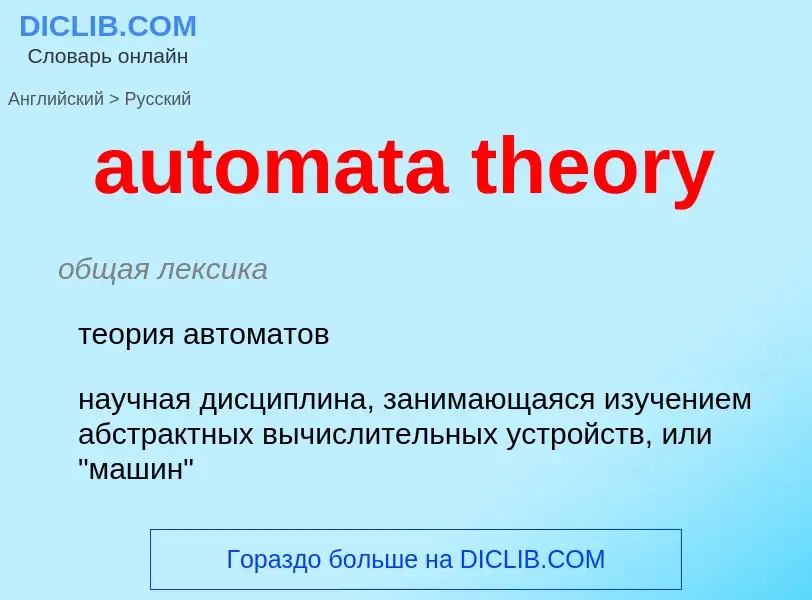Перевод и анализ слов искусственным интеллектом ChatGPT
На этой странице Вы можете получить подробный анализ слова или словосочетания, произведенный с помощью лучшей на сегодняшний день технологии искусственного интеллекта:
- как употребляется слово
- частота употребления
- используется оно чаще в устной или письменной речи
- варианты перевода слова
- примеры употребления (несколько фраз с переводом)
- этимология
automata theory - перевод на русский
общая лексика
теория автоматов
научная дисциплина, занимающаяся изучением абстрактных вычислительных устройств, или "машин"
Смотрите также
математика
теория автоматов
математика
обучающий автомат
Определение
.
Википедия
Automata theory is the study of abstract machines and automata, as well as the computational problems that can be solved using them. It is a theory in theoretical computer science. The word automata comes from the Greek word αὐτόματος, which means "self-acting, self-willed, self-moving". An automaton (automata in plural) is an abstract self-propelled computing device which follows a predetermined sequence of operations automatically. An automaton with a finite number of states is called a Finite Automaton (FA) or Finite-State Machine (FSM). The figure on the right illustrates a finite-state machine, which is a well-known type of automaton. This automaton consists of states (represented in the figure by circles) and transitions (represented by arrows). As the automaton sees a symbol of input, it makes a transition (or jump) to another state, according to its transition function, which takes the previous state and current input symbol as its arguments.
Automata theory is closely related to formal language theory. In this context, automata are used as finite representations of formal languages that may be infinite. Automata are often classified by the class of formal languages they can recognize, as in the Chomsky hierarchy, which describes a nesting relationship between major classes of automata. Automata play a major role in the theory of computation, compiler construction, artificial intelligence, parsing and formal verification.

